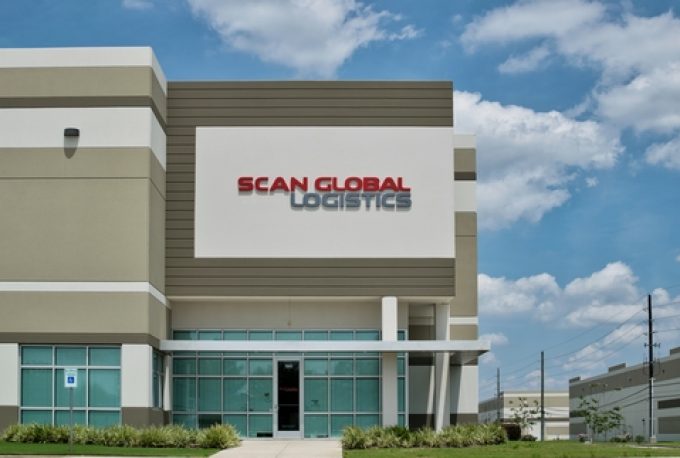DSV chief reticent on Schenker: the focus on growing market share
DSV focused on gains in market share, organic growth and making investors confident in its ...

Scan Global Logistics (SGL) looks to be shaping itself to be the next DSV, noting that, in M&A, it is “increasingly positioned as a company that is the acquirer of choice”.
Announcing its full-year financial results today, it said it was adapting its M&A strategy – to big deals.
“From a size perspective, there is expected to be larger M&As, but fewer, going forward, considering SGL is entering into the last cycle of geographical expansion. M&A investments will increasingly be targeted in countries with robust underlying growth.”
Up to now, the company said: “SGL has predominantly pursued M&A to accelerate geographical expansion. While this will be the case in some significant markets still, more so the M&A approach will be targeted to achieve scale and volumes in key markets, especially in the larger economies. The industry remains fragmented, and SGL still sees significant room for consolidation.”
And, in a bid for “all-weather resilience”, it added: “SGL wishes to have a healthy balance between air and ocean freight, but also in terms of tradelane diversification. Significant organisational investments have been made in sales-supporting functions, such as tender management, procurement, supply chain development and similar. These initiatives form a good basis for achieving extreme growth within all segments.”
Scan Global’s results, meanwhile, were “solid”.
Revenues were €2.02bn ($2.38bn), down 39% from the previous year, “primarily due to a challenging macro environment, coupled with lower freight rates and lower air volumes” – but were in line with expectations. Gross profit was €469m, “on par with last year”. Ebitda before special items amounted to €193m, compared with €211m in 2022.
The net result was a loss of €33m – which it put down to costs relating to the acquisition of SGL Group by CVC Funds. Excluding those costs, the result was a profit of €21m, down from €63m in 2022.
Revenues in air and ocean fell some 42%, but gross profit stayed broadly flat, at €394m. Air volumes fell some 12%, to 150,000 tonnes; ocean volumes remained the same.
“To compensate for the low activity levels within the transpacific-eastbound trade, we have managed to increase our volumes within the Asia-westbound, transatlantic-westbound and Asia-Oceania trade. This has resulted in ~400,000 teu, on par with 2022. Our ocean customer portfolio is well-diversified and well-represented in all industries we operate, which has helped us to navigate through a challenging 2023.”
In air, noted Scan Global, “freight and especially tonnage has been challenged during the year because of customers’ rigid cost exercises”. It added: “The increase in ocean schedule reliability has also resulted in less demand for expedited air freight.
“SGL goes to market based on a hybrid model where fixed allotments and standalone capacity purchases are leveraged by combining the best of two worlds, acknowledging that not all air freight is planned air freight.”
Road saw revenue fall from €317m to €278m, due to “a drop in freight rates and decreased activity levels, driven by a significant over-inventory”. But gross profit increased 3.5%, to €59m, mainly due to North America.
Solutions revenue was €37m, down from €47m in 2022, “impacted by less activity from existing customers”.
SGL also attempted to set itself apart from competitors. It said: “The logistics industry is at a crossroads. In recent years, several large freight forwarders predicted that the future of logistics would entail standardised, predefined solutions. Leveraging blockchain technology, the attempt was to simplify the supply chain and make it as easy as booking an airline ticket.
“But, add disruptions like a blockage of the Suez Canal, attacks on commercial vessels in the Red Sea … and no system can accommodate that.
“Taking the opposite stance, SGL strongly believes that no two customers nor supply chains are alike. Therefore, depending on each customer’s specific situation, requirements and challenges, the global freight forwarder offers its customers two options – standard or complex logistics solutions. This approach has proven a winning formula.
“Unlike its industry peers, which have experienced a gross profit decrease in 2023 due to the volatile market, SGL has not. Its unique business model of standard and complex solutions has proved highly resilient and is responsible for the company’s success.
“It is this unique modus operandi that sets SGL apart from competitors and has positioned them in a sweet spot in the market.”
It said it expected an ebitda in the range of €195m to €215m for 2024, and was eyeing longer-term revenues of €5bn.
Scan Global, which had a heavy focus on sustainability in its report but has an all-male board of directors, said the market was ‘normalising’ in terms of inventory levels.
“In addition, customers pushed forwarders’ and carriers’ margins, while the initial expected consumer-driven increase in volumes never materialised in the second half of 2023.
“All-in-all, this resulted in a highly competitive market environment.”
Comment on this article